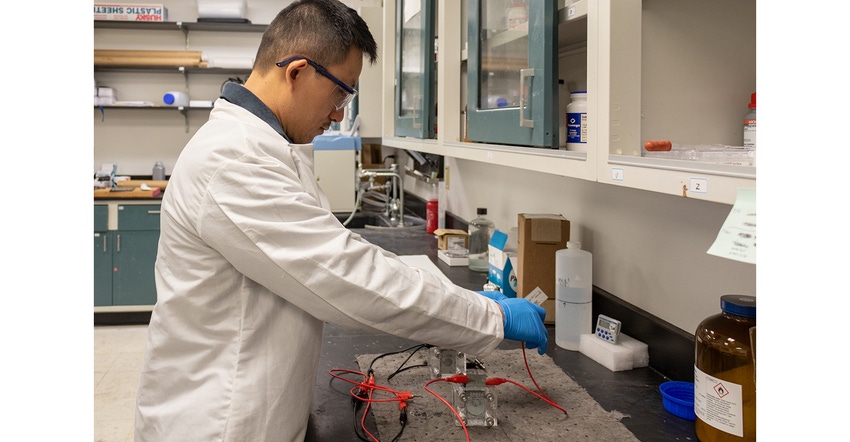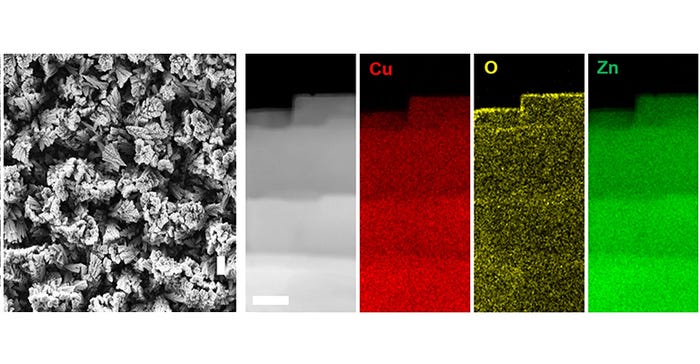'Fireproof' Cell Phone Battery Charges in 3 Minutes
Saltwater electrolyte and nano-engineered electrode surfaces enable safety, charging-speed, and other advantages.
March 23, 2023

A researcher at the University of Central Florida (UCF) has developed battery technology that represents a major leap forward in safety and stability. And, in a huge convenience for cell phone users, the batteries can fully recharge in three minutes.
Yang Yang, an associate professor in UCF’s NanoScience Technology Center, has developed an aqueous battery that replaces the volatile and highly flammable organic solvents found in lithium-ion batteries.
Yang instead substitutes saltwater to create a battery that is safer, faster charging and just as powerful. By using saltwater as the battery’s liquid electrolyte, researchers were able to use naturally occurring metal ions found in the saltwater—such as sodium, potassium, calcium and magnesium—to store more energy.
Previous aqueous battery designs have suffered from low energy output, instability, corrosion and the growth of harmful metallic structures called dendrites on the negative electrode. To solve these problems, the researchers engineered a 3D zinc-copper anode containing a thin zinc-oxide protective layer on top. The highly textured, nano-engineered surface allows for precise control of electrochemical reactions. That increases the battery’s stability—and enables ultra-fast charging in just a few minutes. The battery is also able to operate at temperatures as low as -4 degrees Fahrenheit.

Lithium-ion batteries are ubiquitous around the world, powering mobile phones, laptops, electric vehicles and much more. But lithium-ion batteries are also known to swell, catch fire or even explode. The FAA reported 57 battery fires on flights in 2022. Earlier this month, at least 10 people including passengers and crew were hospitalized following a battery fire aboard a Spirit Airlines flight. Last month, there was a similar emergency aboard a United flight when a passenger’s lithium-ion battery pack caught fire, injuring seven people.
In addition, batteries powering electric vehicles may catch fire if at least partially submerged in saltwater. After Hurricane Ian inundated Florida in September 2022, there were at least a dozen EV fires in Collier and Lee counties, including one that burned two houses to the ground. The reason: Residual salt within the battery or battery components can form conductive “bridges” that can lead to short circuit and self-heating of the battery, resulting in fires.
Yang’s technology solves those problems.
“These batteries using the novel materials developed in my lab will remain safe even if they are used improperly or are flooded in saltwater,” Yang stated.
Yang is in discussions with a battery manufacturer to license the patent-pending technology. The research was supported with funding from the US National Science Foundation and American Chemical Society Petroleum Research Fund. The work is detailed in a new study in Nature Communications
About the Author(s)
You May Also Like





